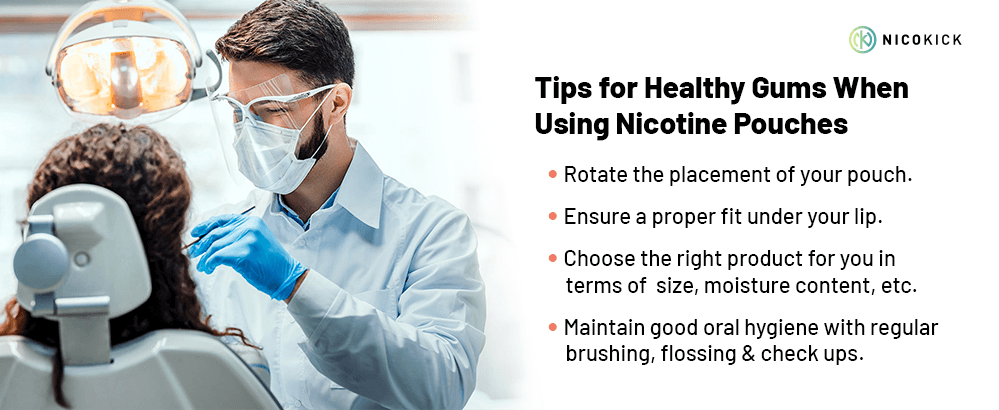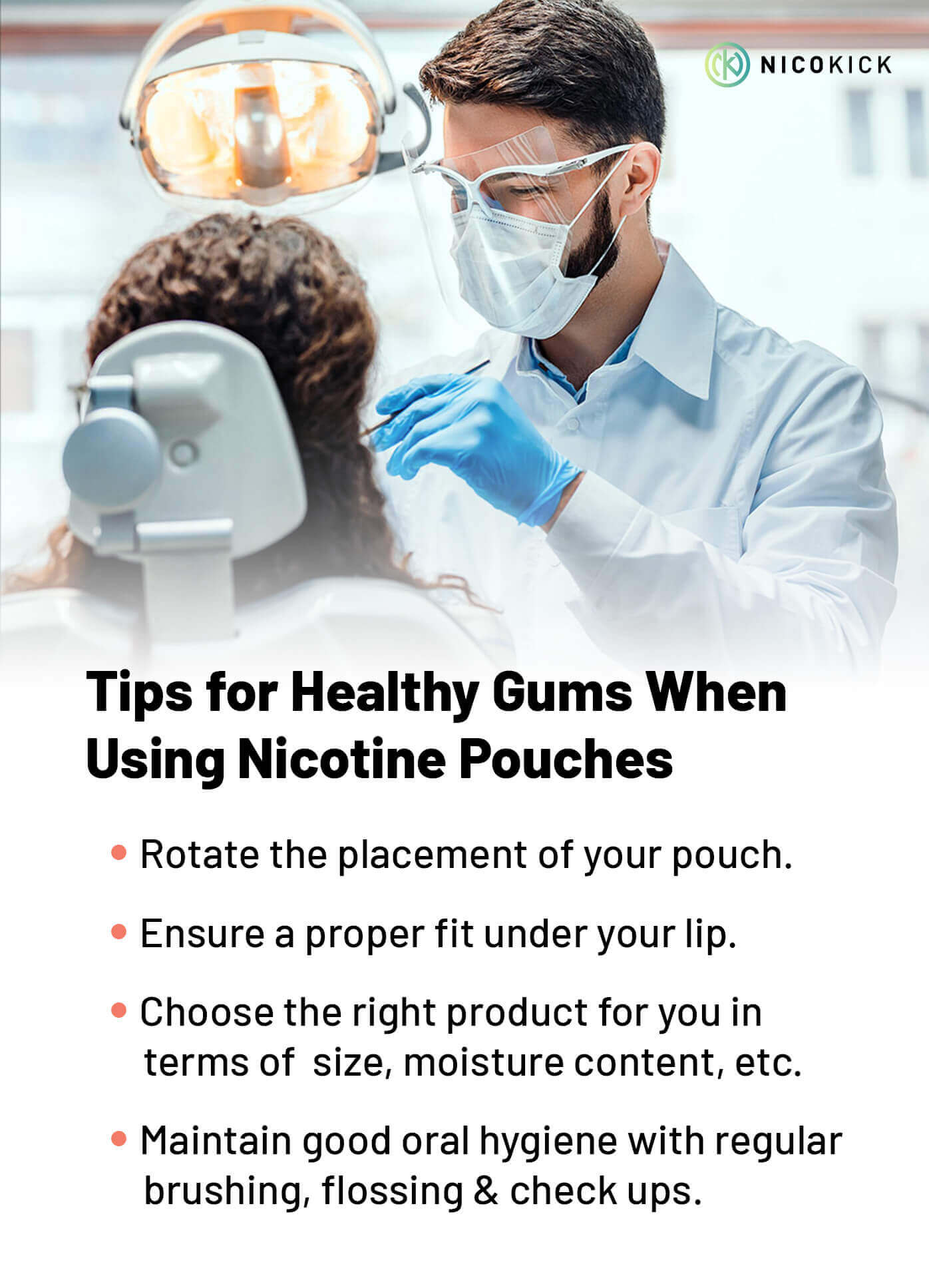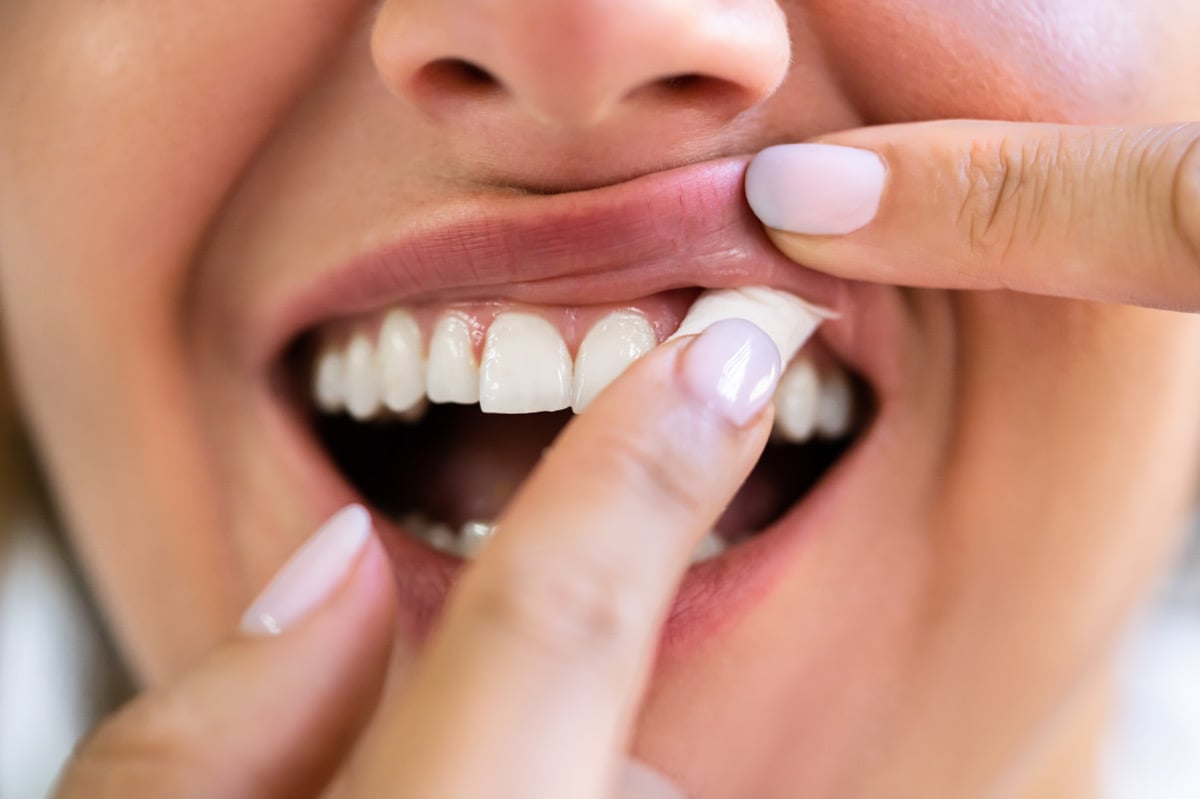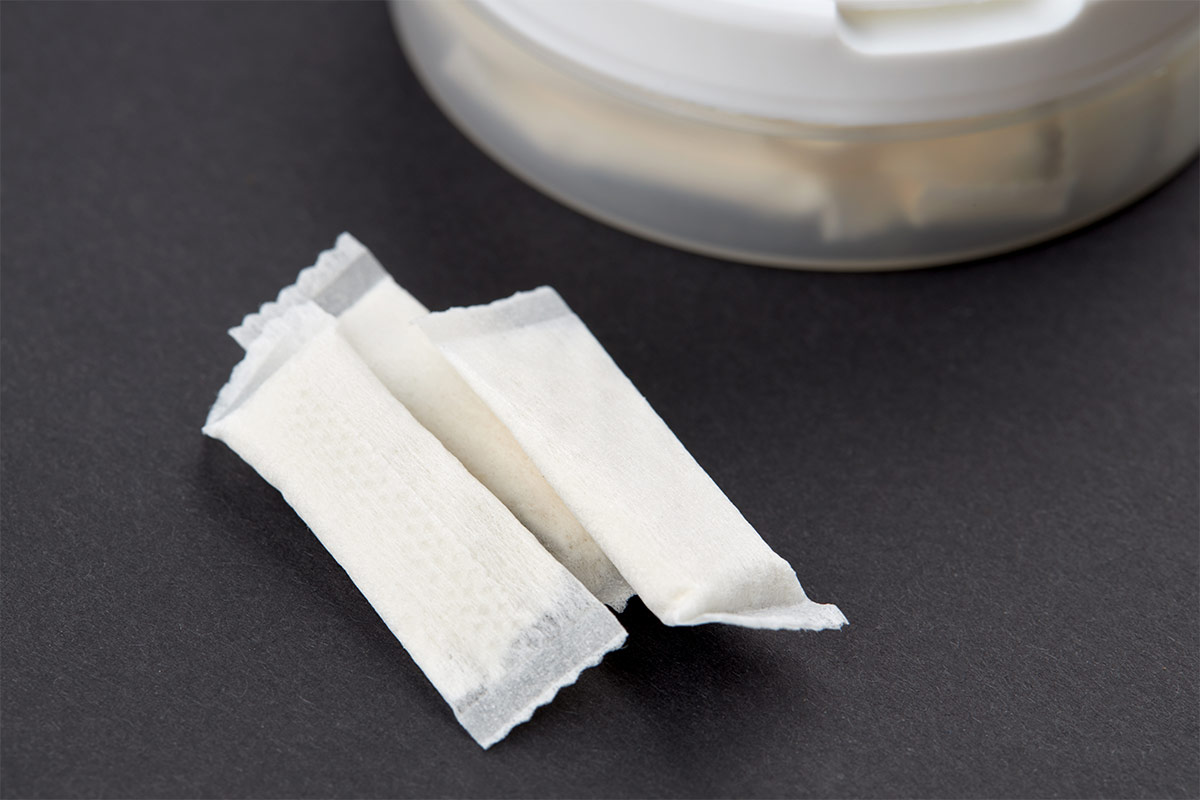Are Nicotine Pouches Bad For Your Gums?
Nicotine pouches are becoming a popular tobacco-free option for those who want to enjoy nicotine without smoke or vapor. Since the pouches are placed under your lip, it naturally leads to the question: Are nicotine pouches harmful to your gums? Let's explore how these products might impact your gum health and offer some helpful tips for maintaining a healthy mouth while using them.
What Are Nicotine Pouches?
So, what exactly are nicotine pouches? Brands like VELO Plus and On! offer these small, easy-to-use pouches that contain nicotine without any tobacco. The nicotine, which is either derived from the tobacco plant, nicotiana tabacum, or synthetic, is then mixed with different sweeteners, additives and pH balancers for a more enjoyable experience in terms of flavor and texture.
Users simply place the pouch under their upper lip, allowing the nicotine to be absorbed directly into the bloodstream through the lining of the mouth. This process takes advantage of the many blood vessels in the gum area for efficient absorption and means you should feel the effects of nicotine almost straight away. At this point we should probably remind you that nicotine can be addictive and should only be used by adults, so enjoy it responsibly.
Potential Impacts on Gum Health
While nicotine pouches offer a smoke-free alternative, researchers are still examining their long-term effects on gum health. Here's what we know so far about potential concerns:
-
- Gum Recession and Irritation: Some users might notice gum irritation or recession (where more of your tooth is exposed at the root). Studies indicate that nicotine pouches shouldn’t lead to significant bleeding gums. Compared to products like snus (a form of moist powdered tobacco), the risk of oral lesions seems lower.
-
- Dry Mouth: Nicotine can reduce saliva production, increasing the likelihood of cavities and gum disease. Staying well-hydrated can help mitigate this risk.
-
- Gum Disease: Good dental care is crucial, as poor oral hygiene increases the risk of gum disease (periodontitis), which can lead to gum recession, tooth loss, and other oral health issues, regardless of whether you use nicotine pouches or not.
-
- Periodontal Problems: Nicotine pouches appear to have a lesser impact on oral health compared to traditional nicotine products. Smoking significantly raises the risk of oral cancer and periodontal problems, which are gum diseases affecting the tissues surrounding your teeth. Current evidence does not strongly link nicotine pouches to similar risks.
-
- Cancer Risk: There's currently no evidence suggesting nicotine pouches can cause cancer.
While minor side effects of nicotine pouches, such as gum irritation, can occur with overuse, these are typically temporary problems. Maintaining good oral hygiene and scheduling regular dental check-ups will help keep your mouth healthy and reduce the risk of these problems.


Tips for Healthy Gums While Using Nicotine Pouches
To keep your gums healthy and reduce irritation while using nicotine pouches, here are some practical tips to consider:
-
- Rotate Placement: Try changing the location of the pouch frequently to relieve pressure on any one spot.
-
- Ensure Proper Fit: Make sure the pouch is securely in place to avoid any abrasions from movement during everyday activities like talking or chewing.
-
- Choose the Right Product: With a variety of pouch sizes and moisture levels available, experimenting with different options can help you find what’s most comfortable for you.
-
- Maintain Good Oral Hygiene: Stick to a solid oral hygiene routine by brushing your teeth at least twice a day and flossing regularly. Don't forget to schedule routine dental visits too – they're essential for keeping an eye on your gum health and picking up problems early.
While nicotine pouches offer a smoke-free and convenient way to enjoy nicotine, it's important to remember that they come with potential risks for gum health and even though they’re tobacco-free, they have the potential to be addictive. Since these products are relatively new in the US, it’s fair to say there’s still a lot to learn about their long-term effects on our gums, and our health in general.
In the meantime, it's a good idea to prioritize good oral hygiene, keep an eye on your gum condition, and reach out to dental professionals if you have any concerns. Regular dental check-ups can help catch any issues early on too.
By incorporating these practical steps into your routine, you can enjoy the benefits of nicotine pouches while taking care of your oral health – win-win!
FAQs About Nicotine Pouches and Gum Health
Minor side effects can include gum irritation and dry mouth, but don’t worry – these effects are typically short-lived! You can manage them effectively with proper hydration and brushing your teeth at least twice a day.
Current evidence suggests that nicotine pouches have a lesser impact on oral health compared to traditional nicotine products. Smoking, for example, significantly boosts the risk of oral cancer and periodontal issues, while nicotine pouches seem to carry fewer associated risks but this is still an area of ongoing research.
To help reduce gum irritation, try rotating where the pouch sits in your mouth every so often, ensuring it fits comfortably, and selecting a product that feels good for you since pouches come in different sizes and formats.
It is well known that smoking cigarettes, which contain nicotine, can cause cancer. But it is not the nicotine that causes the cancer, it is the toxicants (harmful chemicals) in the cigarette smoke. Nicotine has been used safely in medicines for many years - for example, in nicotine chewing gum, which was first developed in the 1970s.
Regular dental check-ups are crucial for keeping an eye on your gum health. It’s generally a good idea to visit your dentist at least once a year, or more often if you notice any changes. Staying proactive about your dental care can really make a difference!
It is recommended to avoid nicotine products, including nicotine pouches, after getting your wisdom teeth removed for at least a week to reduce the risk of complications such as dry socket and delayed healing.











Login and Registration Form